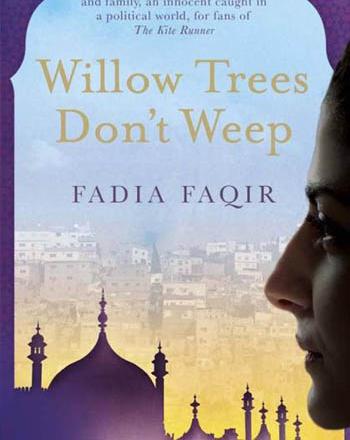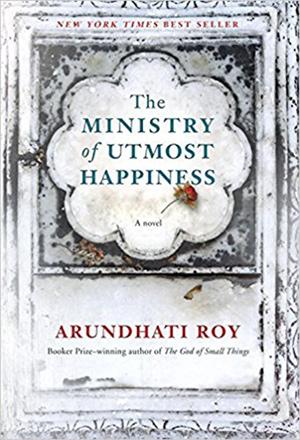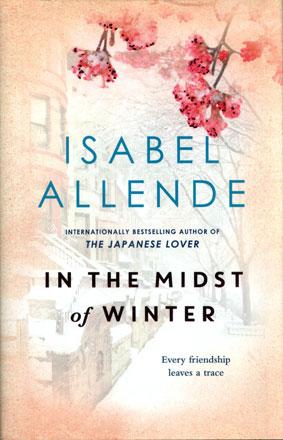You are here
After the blaze of war
By Sally Bland - Jun 01,2015 - Last updated at Jun 01,2015

Oh, Salaam!
Najwa Barakat
Translated by Luke Leafgren
US: Interlink Books, 2015
Pp. 207
In this relatively short novel, originally published in 1999 in Arabic, Najwa Barakat conveys the horrors of war, but not by depicting battle scenes or killing. Instead, by following the post-war life of a small group of survivors, she shows the dehumanising effects of war on combatants and bystanders alike. Set in an unnamed city “that no longer resembles itself” (p. 7), but which one assumes to be Beirut, the story is not about the goals that various political factions fought for, but about the vicious cycle of violence and thuggery that overwhelmed any original intentions.
At the centre of the plot are three friends; all were actively involved in the war, as bomb-maker, sniper and torturer, respectively — “rare types that today have become extinct”. (pp. 54-55)
The torturer, dubbed the Albino, died during the war, but nonetheless looms large in the novel by virtue of his friends’ memories, and the presence of the fourth major character, Salaam, who had counted on his marrying her. At first, Luqman, the bomb-maker, seems to be the main character, but as the novel progresses, Salaam takes on an increasing prominent role, bringing gender issues to the fore and adding to the multiple meanings of the book’s title. “Salaam” means “peace” in Arabic, and “Yaa Salaam” (“Oh, Salaam!”) is a way to address a woman of that name, as well as an exclamatory phrase to express surprise.
Salaam does do surprising, even shocking, things under the impact of the multiple burdens thrust upon her. Awkward and unattractive in a society which prizes physical appearance, she is charged with caring for two persons driven into insanity by the war — the Albino’s mother and her own brother. Desperate to get married in order to achieve a modicum of protection and social respect in a dog-eat-dog world, she pampers the Albino’s war buddies, Luqman and the even more anti-social ex-sniper, Najeeb, but they use her to their own ends; meanwhile, she is sexually harassed and manipulated at work.
In their own way, the male characters are just as desperate; one sees the thwarted childhoods and social inferiority that pointed them in the direction of sadistic violence. For them, the war was “the good old days”, when they controlled the shots; when money, power and women flocked around them. They had hardly known another life. Now, they desperately search for something to do with their lives, for money, sex, respect or a chance to leave the country, in short, a future. There is plenty of irony and parody, and some of their money-making schemes are fantastic, symbolic and even funny, such as the rat extermination company they set up — except that their plans backfire. There is no escape.
Luqman imagines that in “any self-respecting country”, he would have been made a general: “Had the war continued, nourishing him with its blaze, his life wouldn’t have shrivelled up and blown away like ashes scattered in the wind.” (p. 9)
“Peace returned, but the water never came back,” nor did regular electricity. (p. 12)
Watching a TV show about a building on the sea, where residents can park their yachts, a voice echoes his feelings. “We, who still, in war or in peace, carry drinking water from the bottom of our buildings up to the top floor since our faucets squeak but nothing comes out.” (p. 70)
Despite Luqman’s delusions of grandeur about his previous importance, he has a fair idea of the causes of his current distress. “Certain people ignited the conflagration and then they put it out, as though the war was a game. As though we were animals, stones, insects. And me? Us? How will we live now in this rabid age, the era of peace, decline, disgust, corruption, plunder, lies, tricks, appearances.“ (p. 184)
While many throng to public executions, few engage in soul-searching.
Barakat tells her tale in a straightforward manner, accentuated by graphic imagery, but its simplicity is deceptive. In a sophisticated, subtle way, she shapes the reader’s feelings, moving her characters in ways that sometimes elicit empathy, at other times, revulsion.
One can’t escape the implications of their depravity by thinking that they are just perverted misfits. No, they are any and every one of us who could be twisted in terrible, unexpected ways by the horrible repercussions of war that permeate every aspect of life.
Related Articles
Najwa, the protagonist of “Willow Trees Don’t Weep”, is a bundle of contradictions like the world around her.
The Ministry of Utmost HappinessArundhati RoyUK: Hamish Hamilton, 2017Pp 445 “The Ministry of Utmost Happiness” is astonishing and, at
In the Midst of WinterIsabel AllendeTranslated from the Spanish by Nick Caistor and Amanda HopkinsLondon: Scribner, 2018Pp.

















